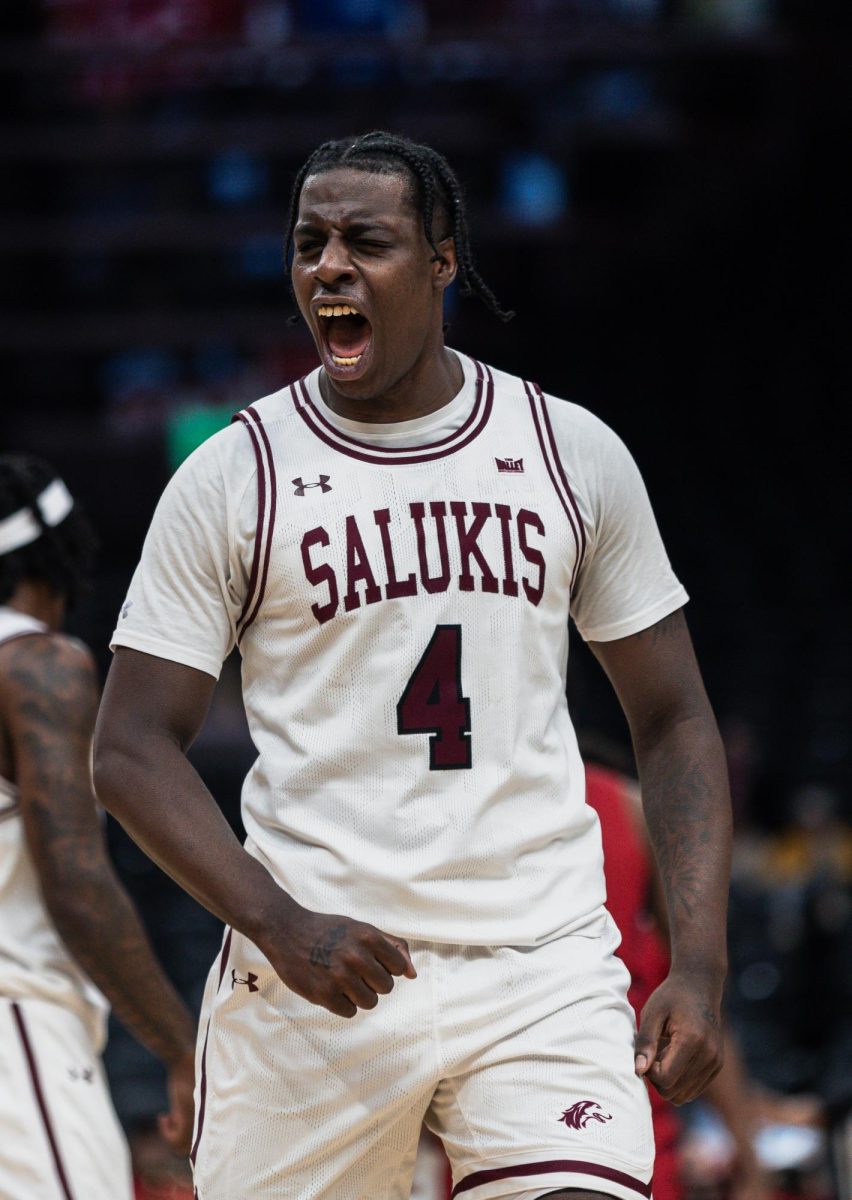Work-study policy change gets positive reaction
September 29, 2004
University money to go elsewhere
Positive feedback has greeted the recent federal work-study policy change, as private Student Center businesses promise to return $34,410 in funds to the University.
Under pressure to alter its practice of allowing private businesses that operate on-campus use of the University’s limited amount of federal work-study funds, the Financial Aid Office launched an investigation.
Advertisement
The University announced Sept. 17 that it had decided to change the policy retroactive fall 2004.
Cliff Ewert, vice president of public and campus relations for Follett Higher Education Group, said the University Bookstore willingly gave up its share of the work-study money after SIUC officials asked if the limited funds could go toward academic purposes.
“If we can help the educational process on the campus by using the funds for other projects that are necessary, I think in the long run that benefits not only the college, but students who need a job in us,” he said.
Ewert said the change will not hurt profits and the student employees would not be affected. He also said work-study was not a part of the contract discussions that brought the bookstore into the Student Center.
The controversy began when the Daily Egyptian reported about the University’s appropriation of work-study funds. An investigation scrutinizing the practice of allowing private businesses to use work-study funds ensued. Although the administration says the work-study guidelines allow it, the University and private businesses decided public pressure merited a change.
McDonald’s and Chartwells, which manages the rest of the food services in the Student Center, will return a total of $21,150, and the University Bookstore, owned by the Follett Corporation, will restore $13,260 to the University.
McDonald’s and Chartwells representatives did not return repeated phone calls.
Advertisement*
Other Illinois public universities said they do not allow private businesses to use work-study funds because they have enough positions to fill without branching into the private sector. Some public universities interpret the rules to allow only non-profit businesses use of the funds.
While the committee findings said U.S. Department of Education officials allowed the practice, the final decision came down to public perception. Larry Dietz, vice chancellor of Student Affairs and Enrollment Management, said they approached the businesses with the idea of using the money for other purposes.
“First of all, the amount of money is not that big in terms of the whole scheme of things for any of them,” Dietz said. “And secondly, they said, ‘We don’t want to have the sense we’re using dollars that can be spent another way.'”
He said the businesses did not want to be associated with the perception of wrongdoing and agreed to stop using the funds. In addition, the businesses agreed to pay back the money they have used since the semester’s beginning and continue the employment of students with work-study awards.
Student Center Director TJ Rutherford said the paperwork for the money’s return was completed the day after the decision was made. Although he does not know where the money will be re-appropriated yet, Rutherford said his staff is aware of the additional funds.
The additional funds will stay with the Student Center until the end of the semester, Rutherford said. If the center finds it does not need the additional money, it will be given to other departments, he said.
However, International Programs and Services has already benefited from the funds. Rutherford said the Student Center gave a little more than $3,200 to the center to help with its work-study.
There may be a downside to the increased budget though.
Rutherford said although there will not be an immediate effect, businesses had used the money to help keep costs down. He said when the minimum wage increase happens in January, businesses might be forced to look at pricing to make up the difference.
Brad Fisher, a senior in political science from Redbud and Undergraduate Student Representative, said he applauded the University’s decision.
“I think they realized they were wrong,” he said. “I definitely don’t think someone should be getting work-study money for working at McDonald’s. That just doesn’t seem right to me.”
Erin Pollock, a freshman pre-major from Macomb, was one of the students who received work-study funds. Pollock, who works at the University Bookstore, said she has not experienced any ill effects of the policy change. Pollock has been allowed to keep her job and her hours at the same pay rate.
“I’m just going to keep my job here because it’s a job, and I like working here,” she said.
Advertisement








